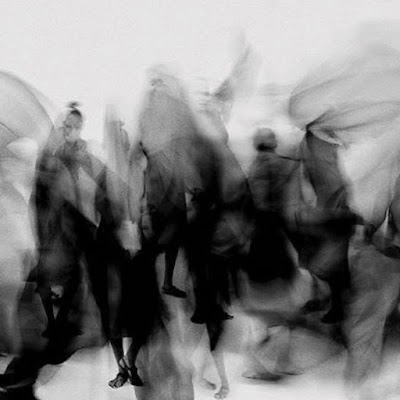Identity in a Shifting World
- Taking a Stand and Evolving-
In the complex and ever-changing world we live in, the concept of identity has become a central theme. Throughout history, people have sought answers to questions about where they come from and who they are. Religion, historical myths, and stories often provide explanations, but in modern times, the quest for identity has become a challenging and sometimes bewildering journey.
The concept of identity is deeply rooted in our need to belong, to be part of a community, and to understand ourselves as individuals. We want to be able to place ourselves in the world, develop a coherent view of ourselves, and shape our own unique identity. This is no simple task, and it becomes more complex as the world around us changes.
What does identity actually mean?
The term "identity" is derived from the Latin "identitas," which means "quality of being the same." It's all about creating a sense of coherence, both within ourselves and in relation to others in our community and the world.
In modern society, traditional identities have been disrupted and altered by a series of historical events, such as the discovery of new lands and cultures, the rise of capitalism, and shifts in political and social structures. People began to increasingly question who they were and how they could define their identity in a constantly changing world.
Changes in our world are becoming more and more eruptive to our identities
- Think about Climate Change. Global warming and the consequences of climate change, such as natural disasters and rising sea levels, force communities and individuals to rethink their relationship with nature and the environment. This affects cultural identities deeply rooted in the bond between people and their natural surroundings.
- Or Migration and Refugee Crises. Global conflicts, economic inequality, and environmental issues lead to mass migration and refugee flows. People forced to leave their homelands often experience a disruption of their traditional identity and must adapt to new cultures and communities.
- But also about Technological Revolution and Digital Identity. The rise of digital technologies has led to a new form of identity, namely digital identity. Social media, online interactions, and digital platforms play an increasingly significant role in how people define and present themselves. This influences how traditional identities are perceived and communicated.
- And what about Culture Clashes and Globalization. The increasing globalization of the world brings different cultures and traditions closer together. This can lead to cultural conflicts and questions about one's identity in a world that is becoming more mixed with diverse influences.
- Think of Gender Identity and Sexual Orientation. The fight for gender equality and the recognition of different sexual orientations have led to a reevaluation of traditional views on gender and sexual identity. This has resulted in greater acceptance and understanding of diverse identities within society.
- Consider Political Divisions and Nationalism. Increasing political divisions, wars, and the rise of nationalism in various parts of the world affect how people identify with their country and community. This has challenged and sometimes disrupted traditional notions of national identity.
- And Economic Uncertainty and Social Mobility. In times of economic uncertainty and inequality, people often reconsider their social and economic identity. The pursuit of social mobility and economic stability can lead to changes in how people perceive themselves and define their identity.
A good thing to be aware of…
In conclusion, identity is a complex and fascinating subject that reflects our deepest human needs. It makes us ponder how we want to shape and express our identity in an ever-changing world. In a world filled with disruptions and evolving dynamics, the exploration of identity is an ongoing journey that requires us to adapt, reflect, and embrace the diversity of human experience. It's a reminder that our identities are not fixed, but fluid, and that our understanding of who we are is continually evolving in response to the world around us.
The rise of the individual as a separate entity with the freedom to choose who they want to be has brought new challenges. The belief in equality has led to the rejection of unfair discrimination and forced people to contemplate what their identity truly entails.



Comments
Post a Comment